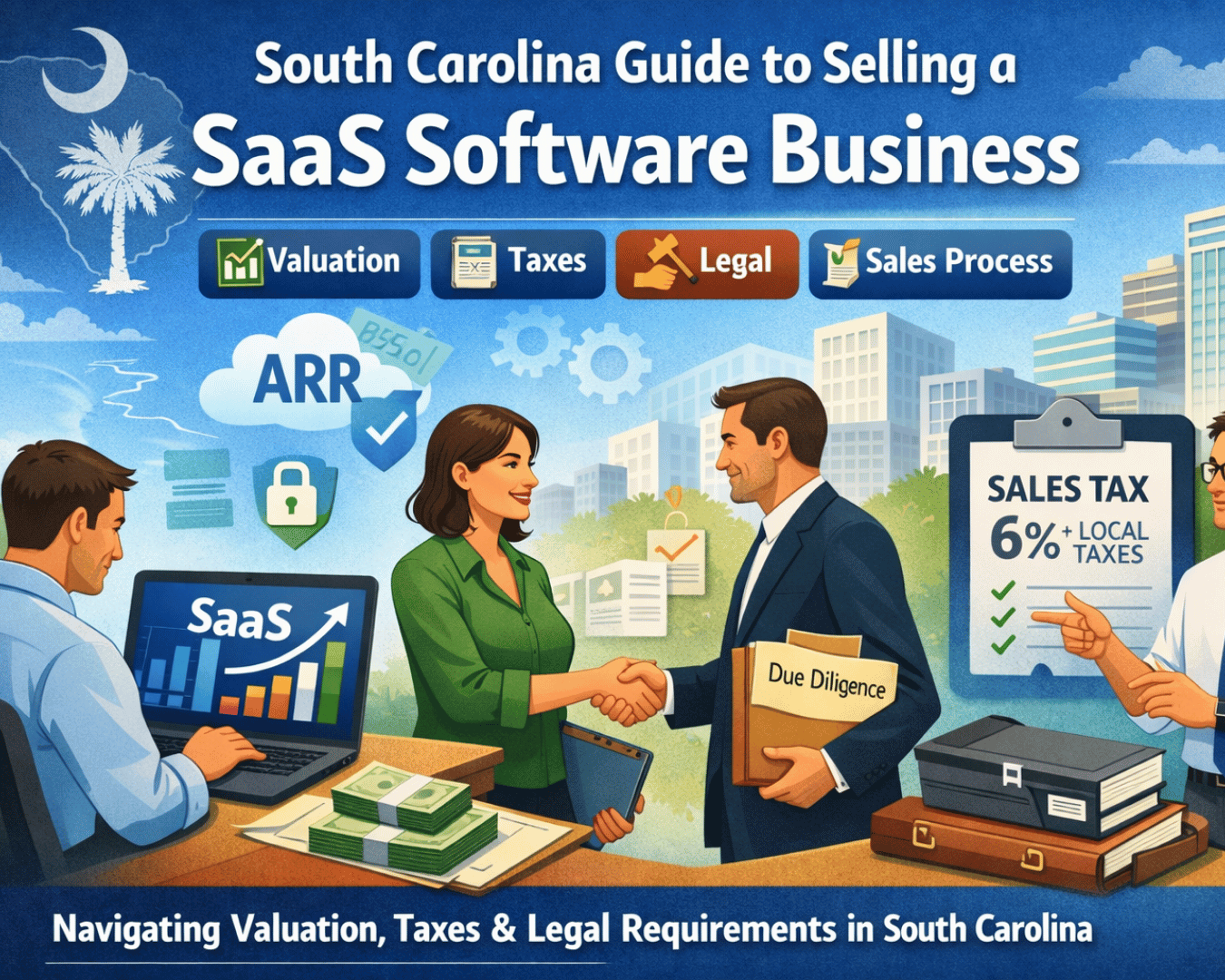Looking for funding to kickstart or grow your business? Friends and family financing is one of the most common ways entrepreneurs secure early-stage capital. Here's why it works and how to approach it:
- What it is: Raising money from your personal network - friends, family, and trusted acquaintances - through loans, equity investments, or gifts.
- Why it’s popular: Flexible terms, fewer requirements, and quicker access compared to banks or venture capital.
- Key risks: Strained relationships, legal complications, and unclear expectations.
- How to succeed: Treat it like a formal business deal with written agreements, clear repayment plans, and regular communication.
This guide explains the benefits, risks, and best practices for navigating friends and family financing while protecting your relationships. Follow these steps to secure funding the right way.
Business Borrowing from Family and Friends: 💡 Tips to Make it Work
Benefits and Risks of Friends and Family Financing
This section highlights the advantages and potential pitfalls of securing financing from friends and family. While this approach can offer unique opportunities, it’s essential to weigh the pros and cons carefully before involving your personal network.
Benefits of Friends and Family Financing
One major advantage is the flexibility in terms and lower costs. Unlike traditional lenders, family members or friends may allow for more lenient repayment schedules, such as deferring payments during slow periods or offering interest rates that are much lower than those of banks. Some arrangements even allow early repayment without penalty. This kind of flexibility can make managing your debt significantly easier.
Another benefit is the quick access to funds. Borrowing from friends or family usually skips the time-consuming credit checks, extensive paperwork, and collateral requirements that come with traditional loans. This makes it a faster way to secure the capital you need.
Supportive relationships also play a big role. Beyond providing financial assistance, friends and family often offer emotional encouragement and understanding, especially during tough times. They may even share advice or connect you with others who can help your business grow.
Finally, there are fewer qualification requirements. Unlike banks that scrutinize your credit score and business history, friends and family are generally more lenient. In fact, the Federal Reserve's 2023 Small Business Credit Survey found that about 10% of small businesses rely on friends and family for funding, making it a common informal financing option in the U.S.
Risks of Borrowing from Friends and Family
However, borrowing from loved ones isn’t without risks. Strained personal relationships are one of the biggest concerns. Financial disagreements can damage relationships that took years to build, especially if the business struggles or repayment is delayed.
Another risk is the lack of clear expectations. Without formal agreements, misunderstandings about repayment terms, interest rates, or what happens if the business fails can arise. What seemed straightforward in a casual conversation can lead to disputes down the road.
There’s also the potential for legal and tax complications. For instance, the IRS requires family loans exceeding $10,000 to include a minimum interest rate (known as the Applicable Federal Rate) to avoid tax issues. Without proper documentation, the loan could be classified as a gift, triggering gift tax liabilities.
Lastly, the absence of formal recourse can leave both parties vulnerable. Unlike banks, which have legal mechanisms to recover funds, informal agreements between friends and family often lack enforceable protections, making it harder to resolve disputes.
A 2022 SCORE report revealed that over 38% of small business owners have turned to friends and family for financing at some point. However, many also cited damaged personal relationships as a major regret when businesses failed to repay these loans.
Benefits vs. Risks Comparison
Here’s a quick comparison of the advantages and drawbacks of friends and family financing:
| Benefits | Risks |
|---|---|
| Flexible repayment terms that suit your needs | Strained relationships if repayment becomes an issue |
| Lower or no interest rates compared to traditional loans | Ambiguity in verbal agreements leading to disputes |
| Faster access to funds without lengthy approval processes | Potential legal and tax issues from poorly structured agreements |
| Supportive lenders who believe in your vision | Lack of formal recourse if disagreements arise |
| Less rigorous qualification requirements | Misaligned expectations about repayment and business outcomes |
To make the most of this financing option, treat it with the same professionalism you would with any formal loan. Clearly document all terms, establish expectations, and maintain open communication. These steps not only protect your business but also safeguard your personal relationships.
For entrepreneurs exploring this route, Clearly Acquired offers resources and advisory services to help you structure these agreements properly. With the right preparation, you can reduce risks while preserving the relationships that matter most.
Preparing for the Funding Conversation
Approach funding discussions with the seriousness of a professional business meeting. This shows respect for both your time and the potential investors’ capital. A thoughtful approach helps you balance professionalism with maintaining personal trust.
Creating a Strong Business Plan
Your business plan is the backbone of any funding conversation. Even when approaching close friends or family, presenting a well-thought-out plan demonstrates your commitment and preparation.
Include clear financial projections, such as revenue forecasts, expense breakdowns, and a two-year cash flow analysis. Make sure to outline the assumptions behind your numbers to show transparency.
Add a detailed market analysis to highlight your understanding of the industry, target customers, and competition. This reassures potential investors that your venture is grounded in research and not just an impulsive idea.
Another critical component is a repayment plan. Specify how and when you’ll return the investment, whether it’s through loan payments or equity. For loans, outline a payment schedule, such as monthly or quarterly installments. For equity, explain your exit strategy and how investors could eventually see returns.
Tailor your presentation to your audience. For family members who aren’t familiar with business, focus on your vision, key milestones, and how their investment will contribute to your success. For those with business expertise, dive deeper into metrics, market trends, and financial details.
A solid business plan not only builds credibility but also lays the groundwork for finding the right investors.
Choosing the Right People to Approach
Choosing the right investors is just as important as crafting your pitch. Evaluate potential investors based on their financial stability and the dynamics of your relationship.
Financial stability is key. Only approach individuals who can afford to lose their entire investment without jeopardizing their financial well-being. Avoid putting anyone in a position where they might face hardship if the investment doesn’t pan out.
Relationship dynamics are equally important. Consider how a financial arrangement might affect your personal connection. Some relationships can withstand the added complexity of a business deal, while others may not. Reflect on your history with the person and how they’ve managed financial matters in the past.
Look for people who show genuine interest in your business or industry. Those who ask thoughtful questions and express curiosity are more likely to be supportive and understanding of the risks involved.
While geographic proximity can be helpful, it’s not essential. However, individuals who are closer to your daily life may have a better sense of your work ethic and dedication, which could work in your favor.
Start with a small group of your most supportive and financially stable contacts. It’s better to have a few committed investors than to spread yourself too thin trying to convince everyone.
Setting Clear Expectations
Transparency is critical when seeking investments from friends and family. Being upfront about risks, returns, and repayment terms protects both your business and your relationships.
Clearly explain the risks involved. Be honest about the uncertainties of startup investments and the possibility of losing the entire investment. Avoid sugarcoating the challenges your business might face or the competitive environment you’re entering.
Define the type of investment before any money changes hands. Whether it’s a loan, equity stake, convertible note, or even a gift, each option comes with its own expectations and legal implications. For equity, specify the ownership percentage they’ll receive. For loans, outline the interest rate and repayment terms.
Set realistic timelines for business growth and repayment. Avoid over-promising on quick returns or ambitious growth projections. If you’re asking for a loan, be conservative with your repayment timeline to account for potential delays.
Establish communication expectations from the start. Let investors know how often you’ll provide updates - whether monthly, quarterly, or at major milestones. Regular communication helps build trust and keeps everyone informed about both successes and challenges.
Address potential setbacks early by outlining contingency plans for missed repayments or unforeseen delays. Discuss scenarios like slower-than-expected growth or the need for additional funding. These conversations prevent misunderstandings later.
Document all agreed terms in writing. This includes loan amounts, interest rates, repayment schedules, and any conversion options. Written agreements ensure everyone is on the same page and protect both parties.
Remember, friends and family are investing in you as much as they are in your business idea. They need to feel confident in your ability to execute your plan and manage their money responsibly. The more professional and prepared you appear, the more likely they are to trust you with their investment.
For entrepreneurs needing guidance, Clearly Acquired offers advisory services to help navigate the complexities of securing funding from friends and family while preserving those important relationships.
sbb-itb-a3ef7c1
Structuring the Agreement
After setting clear expectations, the next critical step is formalizing the terms in a structured agreement. A well-drafted agreement not only protects everyone involved but also helps avoid misunderstandings that could strain relationships later. Let’s dive into some common financing structures and how to document them effectively.
Loan vs. Equity: What’s the Best Fit?
The choice between a loan, equity, or a hybrid like convertible notes depends on your business needs, your investor’s preferences, and your future plans. Each option has its own benefits and considerations.
- Loan agreements: If keeping full ownership of your business is a priority, loans might be the way to go. With this structure, you commit to repaying the principal along with interest over an agreed period. Friends and family loans often come with favorable interest rates compared to traditional banks. A steady income stream makes this option feasible, provided you can meet the repayment terms.
- Equity investments: This structure is ideal for early-stage businesses with uncertain cash flow. By offering equity, investors become partial owners and share in the risks and rewards. Returns typically come from profit distributions or a sale of the business. For startups aiming for rapid growth, equity investments can align investor and founder interests, though the exact terms will depend on your valuation and growth potential.
- Convertible notes: Acting as a bridge between loans and equity, convertible notes start as a loan but can convert into equity later. This is especially useful if your business valuation is uncertain but you expect significant growth. Conversion often occurs when certain milestones are reached, like securing additional funding or hitting revenue targets.
Drafting a Written Agreement
A clear, written agreement is essential to avoid confusion. For loans, it should outline the loan amount, interest rate, repayment schedule, and any penalties for default. For equity, include details about the ownership percentage, voting rights, and how profits and losses will be handled.
Be sure to address potential challenges. For example, specify what happens in the event of a default or if the business underperforms. For equity deals, clarify whether investors will have claims on business assets if things don’t go as planned.
Also, include communication guidelines. How often will you update your investors? Many agreements require periodic financial statements or scheduled business reviews. Additionally, consider adding flexibility through modification clauses, such as allowing early loan repayments without penalties or accommodating future investment rounds.
Seek Professional Guidance
Once you’ve outlined the terms, it’s wise to involve professionals to ensure the agreement is legally sound and fair for everyone.
- Attorneys: A lawyer specializing in small business law can draft agreements that comply with regulations and include essential protections. They’ll also help ensure the terms are enforceable and aligned with your goals.
- Accountants: Tax implications can vary depending on the structure. An accountant can advise on whether loan interest is deductible or how equity distributions will be taxed, especially for larger investments.
- Financial advisors: They can review your repayment projections and assess whether your business plan supports the terms. Their input helps ensure the agreement is realistic and balanced.
For entrepreneurs looking for more hands-on support, services like Clearly Acquired offer tailored advice for structuring agreements with friends and family investors. Their expertise can help safeguard relationships while securing the funding your business needs to thrive.
Managing Repayment and Relationships
Once you've secured funding from friends and family, the real challenge begins. Managing repayments while keeping personal relationships intact takes careful planning, consistent communication, and the right tools. How you handle this phase can either strengthen your bonds or create unnecessary tension.
Best Practices for Managing Repayments
Automate your repayment process. Setting up automatic payments removes the stress of manual transactions and ensures consistency. For loans, align automatic transfers with your business's cash flow - monthly payments work well for steady cash flow, while quarterly payments might suit seasonal businesses better.
Keep detailed records. Use a spreadsheet or accounting software to log every payment, including dates, amounts, and remaining balances. This not only keeps things transparent but also helps with tax reporting, showing whether payments cover principal, interest, or both.
Communicate regularly. Send consistent updates to your investors. A simple email confirming payments and sharing business progress can go a long way in building trust and transparency.
Plan for the unexpected. If you foresee cash flow issues, address them early. Reach out to your investors before missing a payment. Propose specific solutions, like reduced payments or a short deferment period, along with a clear plan to get back on track. Most friends and family investors value honesty and a proactive approach.
Stay professional. Treat your friends and family the way you’d treat a bank - honor deadlines, provide clear documentation, and follow through on your commitments. This level of professionalism shows respect for their investment and builds confidence in your business.
Once your repayment system is in place, focus on maintaining strong personal connections.
Keeping Personal and Business Relationships Healthy
Set boundaries. Keep business discussions separate from personal time. Schedule specific times for updates rather than mixing financial conversations with family dinners or gatherings. This helps protect the natural flow of personal relationships.
Show gratitude. Friends and family often invest money they could use for their own goals. Regularly express your appreciation - whether through a heartfelt thank-you note or a thoughtful holiday gesture. Small acts of gratitude can go a long way in maintaining goodwill.
Address conflicts quickly. If disagreements arise, tackle them head-on. Focus on the business issue at hand, and use clear data and explanations to resolve misunderstandings. This approach keeps emotions in check and prevents personal dynamics from interfering.
Be transparent when needed. If you’ve borrowed from one family member, sharing the details of your arrangement with other close relatives can help avoid misunderstandings or jealousy down the road.
Celebrate milestones together. When your business hits a big goal or becomes profitable, share the success with your investors. A small celebration or a personalized update can remind them how their support made a difference.
Be honest about challenges. If your business is struggling, don’t shy away from tough conversations. Provide clear updates about the situation and your plans to address it. Framing discussions around solutions rather than excuses fosters trust and collaboration.
To support these efforts, consider leveraging digital tools.
Using Tools and Platforms for Support
Organize with document management systems. Cloud-based platforms can store agreements, payment records, and communications in one place. This makes it easy for both you and your investors to access key documents, especially during tax season or if questions arise about past transactions.
Automate tracking with accounting software. Many small business platforms can handle payment tracking and reporting for you. These tools can generate investor reports showing payment history, remaining balances, and timelines - demonstrating your commitment to running a well-managed business.
Streamline updates with communication tools. Instead of sending individual emails, use platforms designed for investor updates. These tools let you share consistent information with all your investors while still keeping a personal touch.
For those managing multiple investors or more complex arrangements, Clearly Acquired offers advisory services tailored to friends and family financing. Their platform provides tools for deal management, documentation, and expert guidance, helping you maintain professionalism while preserving personal ties.
Consult your advisors regularly. Ongoing check-ins with an accountant or attorney can help you navigate tax questions, payment adjustments, or changing business circumstances before they become issues.
Separate personal and business finances. Use business banking tools to create a clear distinction between personal and business accounts. A dedicated account for investor repayments not only simplifies tracking but also reinforces your commitment to professional management.
Key Takeaways
When it comes to friends and family financing, professionalism and clear communication are essential to ensure success and protect relationships. Here's a summary of best practices:
- Treat it like a business transaction: Even though the funding comes from personal connections, approach every step formally, just as you would with a traditional investor. This mindset helps set the tone for clear expectations.
- Put everything in writing: A written agreement is non-negotiable. Clearly outline whether the funding is a loan, equity investment, or gift. Include repayment terms, interest rates, and any legal consequences. Not only does this meet IRS requirements, but it also provides clarity and security for everyone involved.
- Communicate regularly: Keep your investors in the loop by providing updates on the business's progress, confirming payments, and addressing any challenges openly. Transparent communication helps maintain trust and keeps personal relationships intact.
- Keep thorough records: Avoid cash transactions. Instead, use checks or electronic transfers, and document every financial interaction. Having a detailed paper trail ensures tax compliance and offers legal protection if disputes arise.
- Seek professional guidance: If the arrangement becomes complex or you're unsure about tax implications, don't hesitate to consult experts. Attorneys, accountants, or services like Clearly Acquired can provide valuable support and help minimize risks for all parties.
FAQs
How can I borrow money from friends and family without damaging our relationship?
When borrowing money from friends or family, it’s important to take steps to protect your personal relationships. Start by creating a written agreement that clearly lays out the loan terms. This should include repayment amounts, a schedule, and any specific conditions. A written agreement helps ensure everyone understands the arrangement and avoids potential misunderstandings.
Treat the loan like a formal transaction rather than a gift. Be upfront about your repayment plan and make sure to stick to it. Keeping the lines of communication open is key - regular updates on your progress can reassure your lender that you’re committed to honoring the agreement.
By handling the loan responsibly and communicating openly, you can maintain trust and safeguard your relationships while addressing your financial needs.
What should I consider legally and for taxes when setting up a loan or equity agreement with family members?
When setting up a loan or equity agreement with family members in the U.S., it’s crucial to put everything in writing. Be sure to clearly outline the interest rate (which must meet or exceed the IRS Applicable Federal Rate) and repayment terms. This helps prevent the IRS from reclassifying the loan as a gift, which could result in gift tax consequences.
If the loan is forgiven or the interest rate is set below market value, the IRS may also treat it as a taxable gift. This would require proper reporting and could trigger gift taxes. To steer clear of unexpected legal or tax complications, follow IRS regulations carefully and keep detailed records of all agreements.
Should I offer a loan or equity to friends and family when raising money for my business?
Deciding whether to offer a loan or equity to friends and family can significantly impact both your business and your personal relationships. A loan allows you to retain full ownership of your business while committing to regular repayments. This approach works well if maintaining control is a priority and you’re confident in your ability to repay.
On the flip side, offering equity means sharing ownership and future profits. This option can be appealing if you’re seeking long-term support and are open to giving up some control in exchange for a stronger partnership.
When making this choice, think about factors like your financial capacity to repay, how involved your friends and family want to be, and your comfort level with sharing ownership. Whatever you decide, clear communication and a properly structured agreement are key to protecting both your relationships and your business interests.



















%20in%20a%20%2420M%20Sale..png)
%20vs.%20Conventional%20Loans%20for%20business%20acquisition.png)























.png)


.png)
.png)


































.png)

























